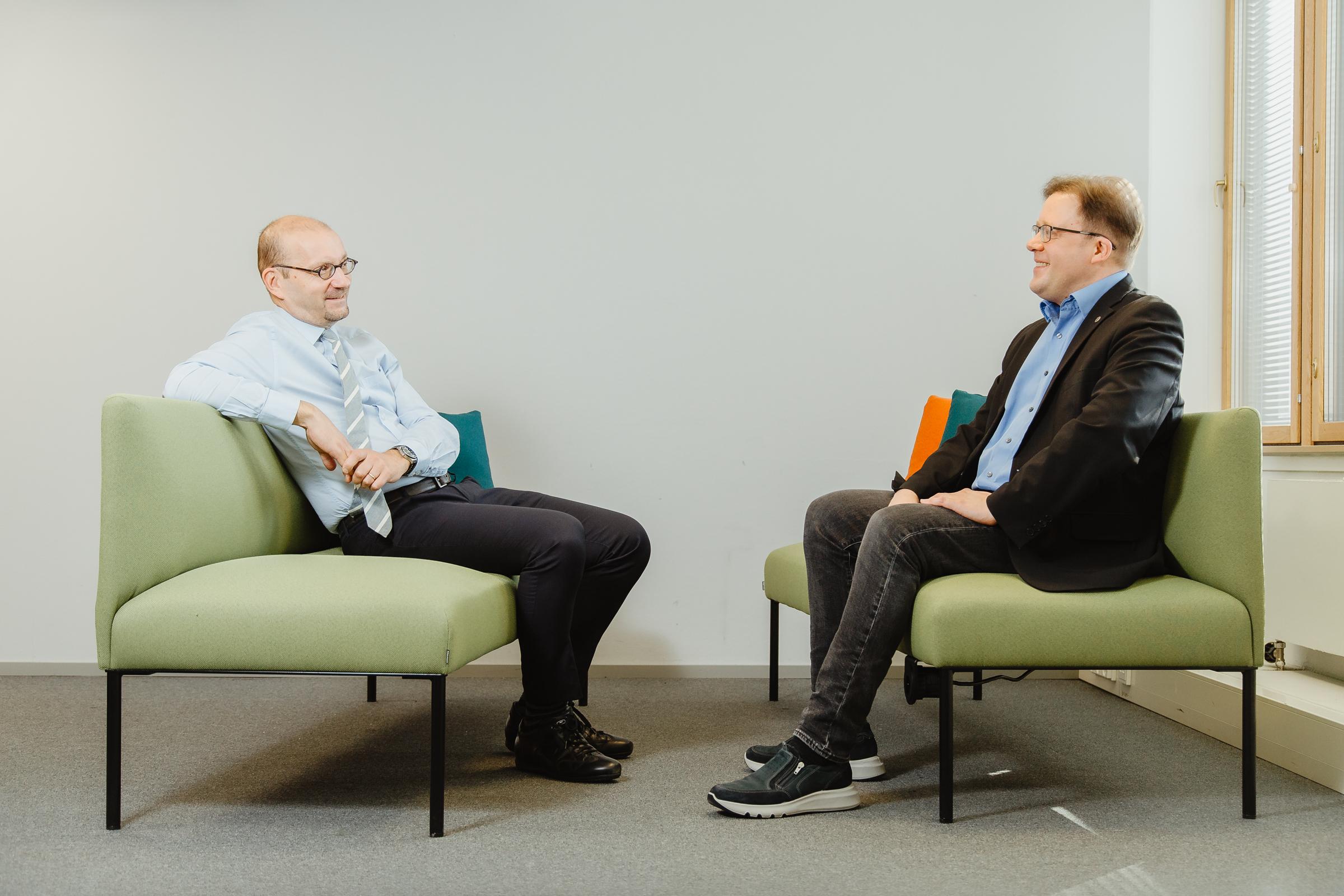

Collective agreements set the ground rules of the workplace
In the media, the negotiations between different trade unions and employer organisations can seem tumultuous. But what actually happens in these negotiations, and what does collective bargaining mean for you?
Creating collective agreements with employer organisations has always been the main focus of the work done by trade unions. Finnish labour legislation defines the minimum requirements for the terms of employment, but the collective agreements contain more detailed conditions for how the work should be done. These agreements are created so that different industries would have reasonable ground rules and to ensure that employees are treated equally. The agreements also help build a more sustainable working life and have a positive impact on productivity.
The collective lobbying done by trade unions includes collective agreement negotiations and supervising that the agreements are adhered to. Many of the terms and conditions of work that we are accustomed to in Finland are the results of these negotiations. These include wages and general wage increases, holiday bonuses, and many forms of paid parental leave. But these terms and conditions of work cannot be taken for granted, as the unions must negotiate to retain them on every new round of collective bargaining. Union membership ensures that the employee side has sufficient bargaining power at the negotiation tables.
Two negotiation organisations, JUKO and YTN, take care of the collective lobbying on behalf of the Akava community.
- JUKO, the Negotiation Organization for Public Sector Professionals, works in the public sector. JUKO negotiates the terms of employment for Akava-members employed by the government, municipalities and joint municipal authorities, wellbeing services counties, universities and the Evangelical Lutheran Church.
- Meanwhile the Federation of Professional and Managerial Staff YTN is a private sector negotiation organisation. It is in charge of negotiations and agreements for Akava members in sectors such as industry, business and service industries, universities of applied sciences and organisations. YKA has its own representatives in these negotiation organisations. If you want to have a say on your collective agreement you can reach out to YKA’s chief negotiators.

YKAs chief negotiators Nuutti Pursiainen and Petri Toiviainen.
Staff representatives play a vital role in the collective lobbying. Shop stewards and elected representatives chosen by the staff are the primarily supervisors of employment terms in the workplace. The staff representatives ensure that the parties, i.e. the employer and the employees, follow the mutually agreed ground rules.
What happens during the collective agreement negotiations?
The negotiations progress phase by phase:
Phase 1: The collective agreement period is coming to a close. The unions will go through the feedback about the agreement and how it could be improved that has come in from members and staff representatives during the agreement period well ahead of time.
Phase 2: JUKO and YTN collate the goals that various unions have for the agreement. They also try to coordinate the shared goals with the unions that fall under SAK and STTK.
Phase 3: The negotiation organisations usually meet the employers’ associations or labour market institutions at the negotiation table 2–3 months before the end of the agreement period.
Phase 4: If the parties cannot reach a new agreement before the end of the agreement period the unions may have to consider industrial action. Before any potential industrial action takes place, the National Conciliator will always act as a mediator in the labour dispute. Industrial action is never an end in itself, but only a tool for achieving a collective agreement.
Phase 5: A new collective agreement is concluded for the next agreement period, and the results of the negotiations, such as wage increases, are implemented. The negotiation organisations collect feedback on the completed round of negotiations and begin setting goals for the next round.
And who negotiates on your behalf, YKA’s member?
YKA’s chief negotiators Nuutti Pursiainen and Petri Toiviainen are members of JUKO’s and YTN’s working groups that negotiate collective agreements and work to improve them further. The chief negotiators also train staff representatives and offer employment guidance for individual members. You are in excellent hands!